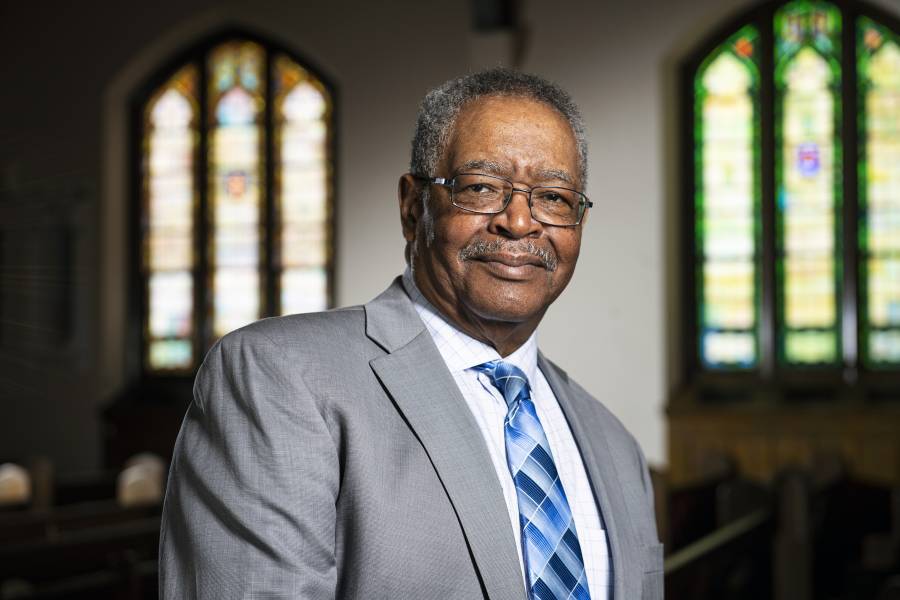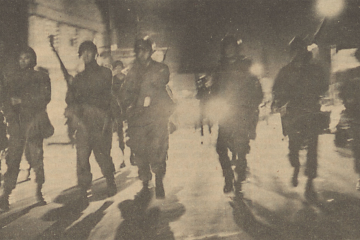Bishop Douglas Irving Miles, an alumnus of Johns Hopkins University and a longtime partner in the university's local economic inclusion efforts, died Aug. 3. He was 72.
A native of Baltimore, Miles was a senior at Baltimore's Dunbar High School when he pictured himself heading out west for college and studying to be a doctor or a science teacher. Yet his plans changed when he experienced what he would later describe as a calling to the ministry, prompting him to stay in Baltimore, enroll at Johns Hopkins University in 1966, and shift his academic focus to the humanities. He later pursued religious education at St. Mary's Seminary and University in Roland Park, according to The Baltimore Sun.
During his undergraduate years at Hopkins, Miles became a witness to great upheaval in a city divided by color lines—an experience that would help shape him into a transformational force for both the university and Baltimore.
Among his greatest accomplishments are those he achieved as co-chair of BUILD, short for Baltimoreans United in Leadership Development. BUILD brings together congregations, public schools, and neighborhood associations to improve the city's housing, increase local job opportunities, and rebuild and support schools and neighborhoods. Through it all, Bishop Miles led Koinonia Baptist Church and maintained his connections to Johns Hopkins, serving as a critical partner in several of the university's economic inclusion efforts, including the HopkinsLocal and BLocal initiatives, which have expanded Johns Hopkins' local hiring and investments in Baltimore.
University President Ron Daniels expressed profound sadness on behalf of the entire Hopkins community upon learning of Bishop Miles' death, describing him as "one of Baltimore's great leaders" and "a true friend to Baltimore, to all its citizens, and to his alma mater."
"For half a century, from his days as a founder as an undergraduate of the Johns Hopkins Black Student Union through his years of ministry and civic leadership with BUILD, Bishop Miles has never stopped blazing a path forward and changing the lives of people and institutions," Daniels said.
When Bishop Miles enrolled at Johns Hopkins on a pre-med track in 1966, he was one of only 14 African American students at the university. In a 2018 interview with the Hub, he recalled the atmosphere on campus in April 1968 following the assassination of Martin Luther King Jr. The Homewood campus was largely insulated from the mayhem, but as a commuter student living in Reservoir Hill, Miles saw buildings on fire, bricks shattering store windows, and riot-control troops trying to quell the violence as he made his way to and from campus. He described an atmosphere of "terror and chaos" at Hopkins, where students were locked down and glued to the news. He remembered feeling uncomfortable and under pressure to be a "spokesperson for African Americans" and provide an explanation of the riots, saying, "It was a time of great pain for African Americans on campus."
Miles was among a group of Black students on campus who turned their pain into progress. They urged the administration to hire more African American faculty and established the Black Student Union in fall 1968. Activism sparked a longtime feeling within Miles that he was being called to the ministry, prompting him to change his academic focus. After earning a bachelor's degree in humanistic studies in 1970, he went on to become a tireless advocate for civil rights and eventually, with his wife Rosanna, founded a ministry, Koinonia Baptist Church, in 1992.
In 2018, in recognition of his deep and unwavering commitment to Baltimore, the university awarded Bishop Miles an honorary doctor of humane letters degree, honoris causa.
"His life was truly dedicated to realizing the full promise of this city and to the idea that each of us had a role to play in achieving that goal," Daniels said, describing Bishop Miles as a dear friend. "I am so grateful to have witnessed his impact, his humanity, and his devotion to the city we all love."
Posted in University News
Tagged alumni, obituaries, douglas miles









